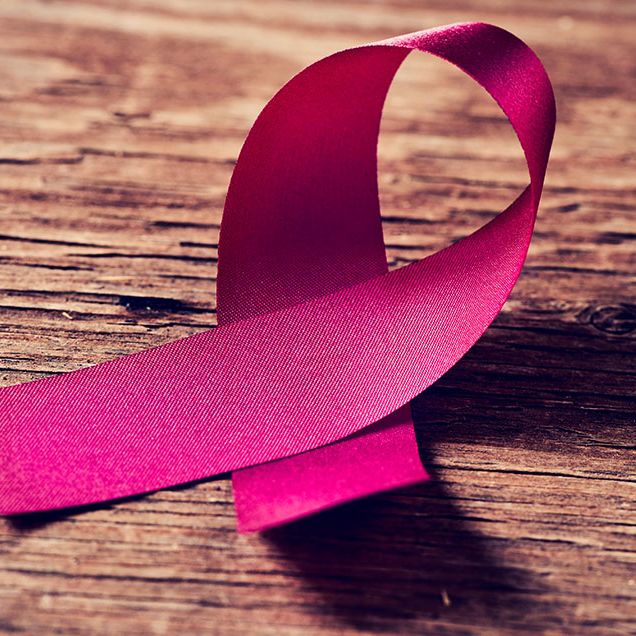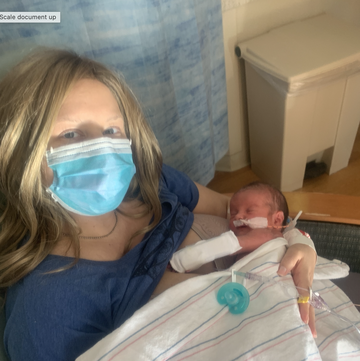Every month, we send some of your biggest questions on nutrition, health, and more to our panel of experts to answer. The question, "A few people in my family have had breast cancer. Should I get genetic testing?" was answered by Megan Frone, certified genetic counselor, National Cancer Institute in Bethesda, Maryland.
If you have multiple people on the same side of the family with breast cancer or with other types (such as ovarian or pancreatic), with rare cancers (such as cancer in both breasts or breast cancer in men), or cancer diagnosed at an early age, you may have an increased risk for breast and other cancers. (Kick-start your new, healthy routine with Women's Health's 12-Week Total-Body Transformation!)
Related: This Woman's Viral Photo Reveals A Breast Cancer Symptom That's Easy To Overlook
Say you do decide to get screened—it's a simple blood or saliva test. It's important to see a certified genetic counselor. (You can find one near you at nsgc.org/page/find-a-gc-search.) Many people are familiar with the BRCA1 and BRCA2 genes, which signal greater risk for breast and other cancers, such as ovarian, but there is a whole world of other genes that could mean the same.
Learn how to do a breast self-exam:
Because we're finding new genes all the time, the results—and what you should do with the information—are not always as clear-cut as with the BRCA genes, where we have years of research on treatment outcomes. (In that case, management may include yearly breast MRIs or risk-reducing surgeries like a bilateral mastectomy.) A genetic counselor will be current on the latest news on which genes to test for based on your family history and how to interpret the sometimes murky results.
Related: 11 Nipple Facts You Need in Your Life
And before you even take the test, the genetic counselor can discuss privacy concerns. A 2008 law prevents discrimination based on DNA by employers and health insurance providers, but the law does not cover disability, life, or long-term-care insurance. She can help you make an informed decision.
This article originally appeared in the October 2017 issue of Women's Health. For more great advice, pick up a copy of the issue on newsstands now!













